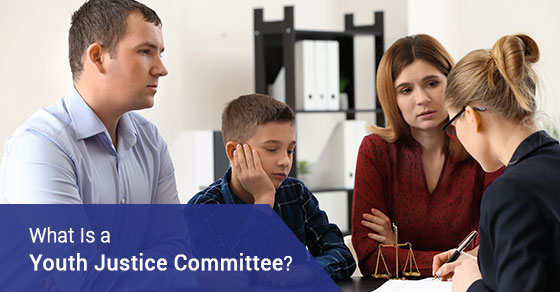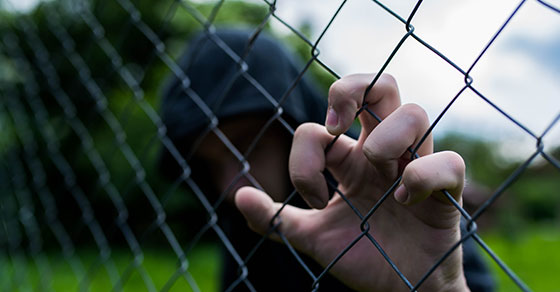What Is a Youth Justice Committee?

Blog by Cassandra Beaulac and Arun S. Maini
Youths (aged 12-17) charged with criminal offences are treated differently from adults by the criminal justice system. (We discussed why and how this is the case in a recent blog which you can access here). One of the ways that youths are treated differently is that they are more likely to have their case diverted out of the criminal justice system. (For diversion generally, see our recent blog here).
This blog seeks to answer the following questions about a particular diversion program for youth:
- What is a Youth Justice Committee?
- How can I apply for a Youth Justice Committee resolution?
- How does a Youth Justice Committee work?
What is a Youth Justice Committee?
The Youth Justice Committee (“YJC”) process is a form of youth diversion, also referred to as an “extra-judicial sanction” (“EJS”). When a youth is eligible for a YJC resolution, he or she can avoid further criminal prosecution and sentencing for the offence. Instead, the youth will participate in a program that focuses on accountability, developing insight, making amends, and becoming a more responsible citizen.
A Youth Justice Committee is a small group made up of community volunteers who work collaboratively with the youth and his or her guardian to determine appropriate sanctions to make amends. The victim may be present during part of this process. The community volunteers will help discuss with the youth the harm caused by his or her actions, the impact it had on the victim and the community, and how things can be made right. This approach enhances the chance for the youth to appreciate and understand how his or her actions and behaviours affect other people and their community.
How can I apply for a Youth Justice Committee resolution?
In a few jurisdictions, such as Dufferin County (Orangeville courthouse), the police will refer the youth to the YJC before deciding whether to lay a criminal charge. If the youth successfully completes the YJC program, then charges will not be laid.
However, in most cases, it is the Crown attorney who decides whether the youth is eligible. Sometimes the Crown will decide this before the first court appearance, and this will be noted on the Charge Screening Form attached to the initial package of the disclosure. In many other cases, eligibility for the YJC program must be negotiated by your lawyer, who can prepare and present submissions to the Crown as to why you should be given the benefit of a non-criminal resolution to your case.
How does a Youth Justice Committee work?
If you are eligible for a YJC resolution, the police or the Crown will make the referral. You will meet with the YJC program coordinator who discusses the offence you are charged with and the YJC program. Participation in the YJC program is voluntary, although because it results in the case being diverted out of the criminal prosecution stream, it is usually the best option.
The youth will have to acknowledge his or her involvement in the offence and express a willingness to make amends for the misconduct. (This acknowledgement, as well as the YJC process itself, remains confidential; the Crown, police or the court cannot use it against you in a trial if you end up not going through with the YJC program). The YJC coordinator will then tailor a program to address your specific crime, your involvement in it, and the issues that need to be addressed, such as counselling; restitution; remorse; education, etc.
The goal of the YJC program is to promote accountability; make amends; develop insight and maturity, and to give the victim a voice in the process as well.
The community volunteers will help discuss with the youth the harm caused by his or her actions, the impact it had on the victim and the community, and how things can be made right. If the victim chooses to not be present at the committee, he or she can express how the young person’s behaviour and actions affected them, and how it made them feel. This allows the youth to appreciate and understand how their actions and behaviours affect other people and their communities.
How long does the Youth Justice Committee process take?
The YJC process takes as long as it is needed to address the issues and to complete the necessary steps. Typically this takes about three months or so.
Possible Sanctions
There are many possible tools to address the misconduct and promote the goals of the YJC process, as each Youth Justice Committee contract is tailored to the needs of the young person, victim and community.
Some common sanctions include, but are not limited to:
- A sincere apology letter, or an in-person apology
- A reflective or educational essay, report or project
- Participation in an educational workshop or program (victim empathy, cyberbullying, sexting etc.)
- Community service hours
- Working with a community agency for specific skills-training or support (employment, substance abuse, recreational sports programming)
- Financial restitution
- Personally repairing property damage
- Donating to a charitable organization.
When a Youth Completes the Program
After the referral to the YJC program is made, the case is usually remanded (postponed) for about three months for the program to be completed.
At the youth’s next court appearance, he or she will update the court as to the successful (or unsuccessful) completion of the program. If the program is completed successfully, the charges will be withdrawn.
If the youth does not successfully complete the program, the youth may be given more time to complete the program, or their matter may be referred back to the Crown Attorney for prosecution.
If you or your child is facing criminal charges in youth court, and need the advice of an experienced and skilled lawyer to help you through the legal process, call The Defence Group for a free consultation at 877-295-2830.
Cassandra Beaulac is a recent graduate of the University of Windsor Law School
Arun S. Maini is a criminal lawyer and former prosecutor with over 20 years of experience.


